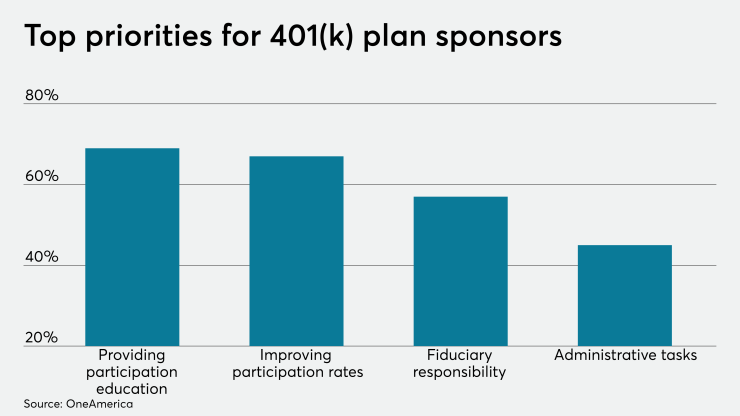The financial fallout caused by coronavirus is causing employees to worry about what their retirement funds will look like when all this is over, especially if they had to resort to taking money out of their retirement savings to pay unexpected medical bills.
“Many Americans are in a position where their retirement savings represents the bulk of the savings that they have and in some cases, maybe the only savings that they have,” says Edward Gottfried, director of product at Betterment for Business.
In March, Congress outlined new rules for retirement fund withdrawals in the CARES Act, allowing for penalty-free withdrawals up to the full amount of the 401(k) or $100,000, whichever is the lower amount.
In an effort to further support clients who need to make the difficult choice to tap into their retirement savings, Betterment for Business has decided to waive all standard fees associated with early 401(k) distributions and loans for plan participants.
“We wanted to make sure that we were following Congress’s lead in making sure that anybody who needs access to funds from their retirement savings as a result of being personally impacted by coronavirus has that opportunity,” Gottfried says. “We try to make sure that [clients are] thinking about withdrawing just what they absolutely need.”
In a one-on-one interview Gottfried shared his thoughts on financing emergency expenses and how coronavirus could impact employees’ retirement.
Should employees look to their retirement savings for emergency funds?
It really can have adverse impacts on your retirement readiness to dip into your retirement savings, even temporarily. Even if an employee took advantage of the coronavirus related distribution— which allows them to be paid the amount taken out of a 401(k) within three years— in those three years, you could miss an opportunity for your money to go up pretty dramatically. This should be the last funding source that you have available to you that you dip into.
What strategies should employees have in place to avoid dipping into retirement funds?
One of the things that Betterment for Business has always instructed employees with 401(k)s is that it's important not just to be saving for retirement, but to be saving for retirement in conjunction with an emergency fund. An emergency fund is a cash heavy account that is invested outside of a tax advantaged situation like a 401(k). This is something that we make sure our plan sponsors are armed with. We have cautioned people to think about taking out an amount of money that they absolutely know they need for the next little while, knowing that they are able to take another distribution if they need to do that. We want to make sure that no one feels compelled to take out more than what they need right this moment because the option remains relevant to them.
What steps can employers take to ease the burden for employees who are considering this step?
We’ve seen a trend over the last couple of years of employers embracing financial wellness education as part of the benefits that they can and should be providing to their employees. Part of what we’ve seen employers do is educate their employees on the importance of having a safety net, having this sort of emergency savings fund available of somewhere between three and nine months worth of salary. Obviously that's a lot to save in one moment, but employees should think about making small contributions.
What impact is or will COVID-19 have on employees’ retirement planning?
We do believe that this volatility will be short term. The markets absolutely have recovered from every setback that we've seen in the past and markets go up over time, but we can't tell exactly when the markets will recover. Retirement savings should be sustaining employees’ lifestyles in retirement. We preach patience, which means more than just leaving money in your retirement account, unless you absolutely cannot. Don't make any major changes to how the money in your retirement accounts are invested. Now is not the time to make broad changes in the way that you might have invested those funds.
What key lessons should HR professionals take away from all of this?
It is important for them to know that the benefit that they've been providing to their employees is one that has greater flexibility to help account for some of the financial hardship that their employees can be in. The other thing that employers should understand from this is that as we start to approach recovery and a return to normalcy, they should be thinking much more strongly about how they can help to prepare and educate employees in the event of another market downturn or another unfortunate global circumstance.






